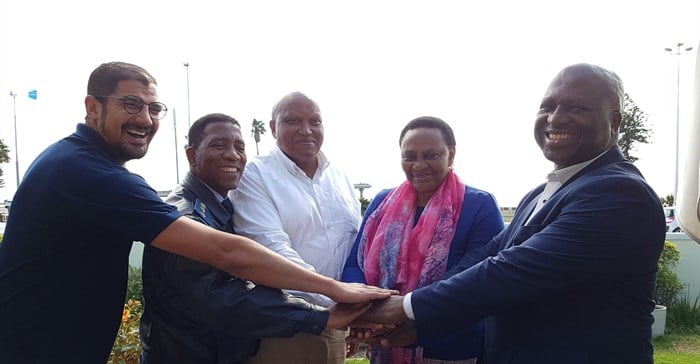
Top stories






More news






ESG & Sustainability
#Sona2026: President announces crisis committee to tackle SA's water challenges








The event will include an interactive careers exhibition targeted at school learners, tertiary students and unemployed youth, to raise awareness and provide information on maritime study and career opportunities.
At the same time, the national Maritime Awareness Programme will be launched, showcasing the various activities and media that will form part of the campaign and engaging private and public sector stakeholders on opportunities and challenges to creating employment in the maritime sector.
"Government is driving Operation Phakisa in the Oceans Economy to grow the maritime sector, and there is strong awareness within government, education and training, and the industry itself of the socio-economic growth potential of the maritime economy. Now we need to bring the public along with us – the youth, coastal communities, civil society and the broader business sector, particularly small enterprises – to grow interest in and awareness of the opportunities presented by our country’s vast maritime resources," said Odwa Mtati, SAIMI acting CEO.
The awareness programme will include activities such as youth skills development, seafarer development, empowerment of women in the maritime sector, engagements with the maritime industry on sector development, initiatives to increase participation in the maritime economy by coastal communities and previously disadvantaged groups, and to develop small enterprises in the sector. The campaign will include a national programme of events such as career expo’s and workshops, and multi-media to share information and tell the story of South Africa’s maritime heritage and current and future opportunities.
Led by SAIMI, the campaign is being driven by a multi-stakeholder task team including the SA Maritime Safety Authority (SAMSA); the Transport Education and Training Authority (TETA); the departments of Labour; Higher Education, Science and Technology; Basic Education; Transport; Public Works; Environmental Affairs, Forestry and Fisheries; Government Communications and Information Services; Tourism; the SA Police Service; and the National Skills Fund.
"All of these stakeholders have an interest in promoting maritime education and training and the oceans economy, and each drives their own initiatives and campaigns. We formed this multi-stakeholder task team so that we can work collaboratively to achieve our common aims, coordinate efforts, pool resources to maximise efficiency and deliver a consistent message,” Mtati said.
Mtati highlighted that the oceans economy has been shown to have the potential to contribute up to R177-billion to South Africa’s GDP (vs R54-billion in 2010) and 1-million jobs (vs 316,000 in 2010) by 2033.
South Africa has a coastline of more than 3,000km and controls maritime territory (Exclusive Economic Zone (EEZ)) of 1.5-million km2, greater than its land mass of 1.2-million km2, and it is estimated that up to 90% of South Africa’s imports and exports are moved by sea.
South Africa’s boat-building industry is growing, currently valued at R2.2-billion, and the country is ranked in the top three manufacturers of catamarans in the world.
Other oceans economy sectors targeted for growth include aquaculture, small-scale fisheries, offshore oil and gas exploration, marine manufacturing, and coastal and marine tourism, supported by initiatives such as upgrading of small harbours and enhancing skills development, education and research and technology innovation.
“This national maritime awareness campaign is intended to raise consciousness that South Africa IS a maritime nation and by growing awareness of the opportunities for careers, employment, business, upliftment of communities, we aim to grow participation in the oceans economy and position South Africa as Africa’s leading maritime nation,” Mtati said.
The campaign will also promote awareness of the diversity and sensitivity of the coastal and oceans environment, which supports tourism, recreation and cultural activities, and the need for integrated management and conservation of the oceans resources in order to ensure sustainability for future generations, Mtati said.